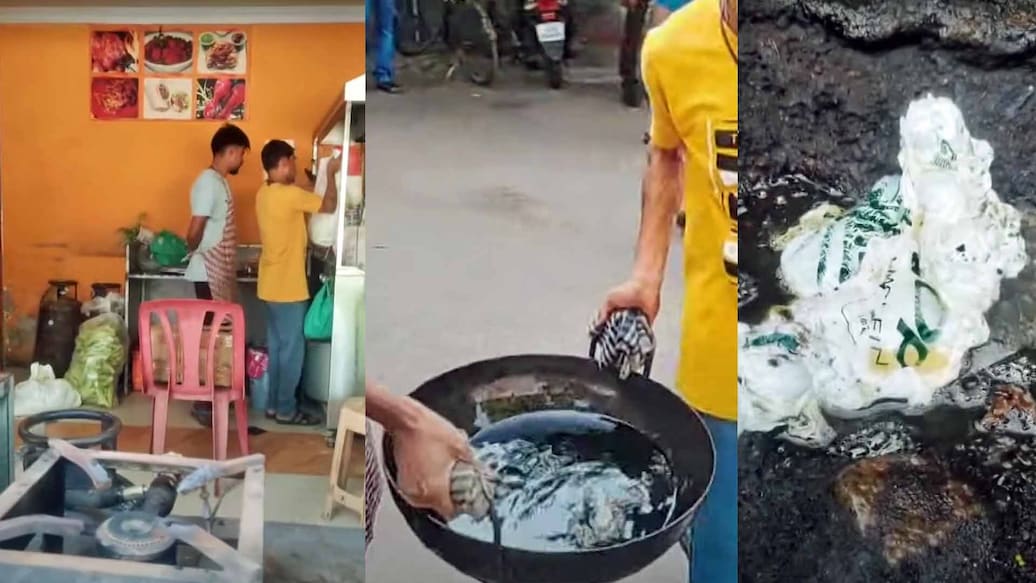Melted plastic in your snacks? Kollam raid exposes shocking food hazard

Mail This Article
In a deeply alarming food safety violation, health officials in Kollam city shut down a wayside snack shop near SMP Palace Road after discovering that plastic covers from refined palm oil pouches were being melted directly into the cooking oil used for frying snacks. Half-melted covers were found on-site, and the oil showed clear signs of contamination. The shop, operated by migrant labourers, lacked basic hygiene, employee health cards, and legal documentation.
What was happening?
In a cost-cutting and hazardous move, workers at the shop were allegedly heating used cooking oil along with plastic covers from refined palm oil pouches. Health inspectors found half-melted covers at the scene—clear evidence that the practice was intentional and ongoing. These snacks, made in extremely unhygienic conditions, were being supplied even to areas near the Kollam Railway Station.
Why is plastic added to oil?
The theory is simple but sinister: vendors believe that melting plastic into oil helps extend its frying life, thickens the texture, and improves the appearance of fried items. But this dangerous shortcut poisons food with chemicals that have no place in the kitchen.

How harmful is it?
Melted plastic can release highly toxic compounds such as:
- Dioxins
- Furans
- Phthalates
- Heavy metals
Consuming food cooked in such oil can lead to:
- Cancer risk
- Hormonal disruptions
- Liver and kidney damage
- Respiratory and digestive issues
Spotting the danger: How to protect yourself
- Look and smell closely: A strange burnt smell or extra-greasy texture can be a warning sign.
- Avoid suspiciously cheap snacks: If something feels too cheap to be true, it probably is.
- Support safer food sources: Trust licensed vendors and those who are transparent about hygiene practices.
- Report what you see: If you spot questionable food practices, inform local food safety authorities.
What next?
The shop has been sealed, the owner has been served a notice, and officials have promised more inspections in the days ahead. The message is clear: such practices will not be tolerated.
Food safety isn’t optional—it’s a right. As consumers, let’s be vigilant. Ask questions, choose responsibly, and remember: clean food begins with clean kitchens.
A dangerous mix-up: What is plastic pyrolysis, and how is this different?
It’s important to understand that melting plastic into cooking oil is NOT plastic pyrolysis.
Plastic pyrolysis is a controlled industrial process where waste plastic is heated in the absence of oxygen to break it down into synthetic fuel—such as pyrolysis oil, gas, and char. This is done in sealed reactors at high temperatures (typically 350–500°C) and is used to convert plastic waste into alternative fuels or industrial chemicals.
Pyrolysis is not for food: The resulting pyrolysis oil is never meant for human consumption.
It’s used in: furnace heating, industrial boilers, or as a raw material for chemical manufacturing—not in kitchens.
In Kollam: There was no such process. Instead, this was crude, direct heating of plastic in cooking oil used for making food—a completely illegal and toxic act.

